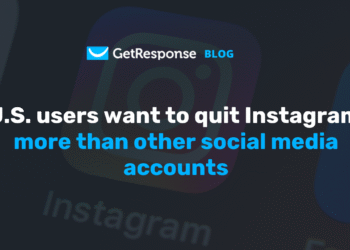Nestlé CEO Laurent Freixe was fired this weekend for failing to disclose an intimate affair with a direct subordinate.
Suntory Holdings CEO Takeshi Niinami resigned Tuesday after allegations of purchases of illegal drug supplements came to light.
And Astronomer CEO Andy Byron resigned after being caught on a Jumbotron at a Coldplay rock concert canoodling with the company’s head of HR.
It’s the classic sex, drugs and rock ‘n’ roll trifecta that first appeared in popular culture courtesy of British singer Ian Dury, who wrote the song about it in 1977. The philosophy was heartily embraced by many other rock stars, including Keith Richards and Mick Jagger from The Rolling Stones and their contemporaries.
Add that to other high-profile similar incidents in the business world this year, such as Kroger CEO Rodney McMullen resigning from the supermarket retail giant following “personal conduct that was not disclosed” and Kohl CEO Ashley Buchanan being fired because of an “unusual vendor relationship” that involved awarding lucrative contracts to a company led by a woman with whom he was having a relationship.
They follow a well-trodden path, primarily of men breaking basic rules of corporate governance when they knew perfectly well they were doing so. In September 2023, BP CEO Bernard Looney resigned from the energy company after failing to disclose the full extent of past personal relationships with colleagues. And McDonald’s CEO Steve Easterbrook was fired in 2019 for having a consensual sexual relationship with an employee.
It’s always gone on. But one wonders why this is still the case and why basic tenets of corporate governance and decent human behavior continue to avoid the attention of many CEOs. They know the rules and they know these behaviors are against company policies — yet they still engage in them. They also know the focus on modern business and CEOs is intense and unrelenting.
A survey of 344 of the Fortune 500 CEOs by corporate software company Equilar and The Associated Press showed the median total compensation of CEOs in 2024, including salary, bonus, stock and options, was $17.1 million, up 9.7% from the prior year. Only 27 of those surveyed were women.
On the other side of the coin, there has never been more pressure on CEOs.
The CEO Council referenced data produced by employee and executive consultancy Challenger, Gray & Christmas suggesting CEOs left their posts at a record level in 2024, with 373 public-company chiefs leaving, up 24% on 2023.
Pressures are being wrought by a lack of economic stability, the impact of tariffs, geopolitical uncertainty and serious armed conflicts, reconfiguring for an AI world, significant business and brand transformation and, on top of all that, last December’s murder of UnitedHealthcare CEO Brian Thompson on the streets of Manhattan.
However, their level of remuneration typically puts CEOs in a rarefied atmosphere where the currency is a private jet or the best first-class travel, chauffeur-driven cars, valet parking, executive elevators, high-level assistants and an army of in-house and external lackeys responding to their every whim and request.
They operate in a corporate bubble and can lose touch with reality, take themselves too seriously, become out of touch with employees and start to believe the bubble they exist within is real, which might explain the egregious behavior some of them continue to engage in.
This hubris isn’t restricted to the CEO’s office. It can spread throughout the C-suite — and even into the communications function.
But CCOs must remember their job is to have serious conversations with their CEOs and senior executives, especially if they suspect something is going wrong. To use the old cliché, they must speak truth to power, act accordingly and protect the reputation of the organization they are working for.
There are many excellent and effective CEOs who adopt a customer- and employee-first agenda and recognise that they themselves need to be the first line of communication when it comes to all stakeholders, with the support of their in-house teams and PR agency partners.
It’s surprising that the sex, drugs and rock ‘n’ roll misbehavior is still a thing among some execs at the top of corporations – and CEOs should know better by now.
But, if they continue to persist, recent case studies prove they are going to get caught, boards will act and, ultimately, the checks and balances of the system are working.
















